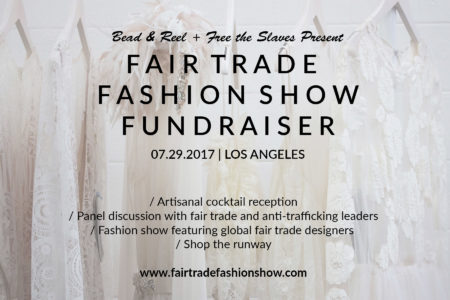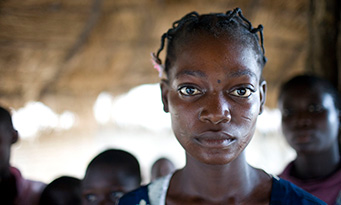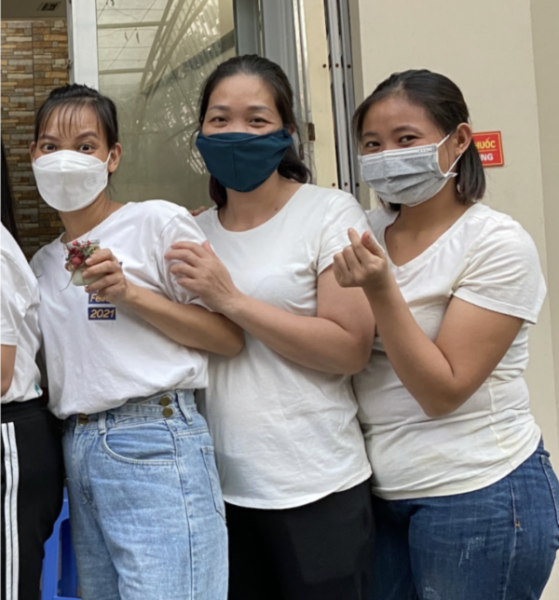We never get tired of highlighting the amazing work that our partners in the Fair Trade Fashion Show are doing. Maggie’s Organics, a conflict-free silver level sponsor, is committed to providing fair trade fashion to their customers. Bená Burda founded Maggie’s Organics in 1992. She credits her suppliers with aiding the fair trade effort.
“Twenty-five years ago we set out to do business with our values intact, and our biggest impact continues to be with our suppliers because we lead with those value, Bená says. “We have earned their trust and confidence. We pay them well; we develop long-term contracts; and more than anything, we listen. We make design changes to styles based on ease of production. We interact with the workers, not just with the ‘bosses,’ and we genuinely appreciate their feedback. We don’t just talk about real fair trade, we show them.”
Supply chain transparency has become a hallmark in all parts of Maggie’s Organics.
“We have also begun to impact our customer base by incorporating supply chain causes into our marketing,” Bená says. “From creating socks that donate 20 percent of sales to saving honey bees, to campaigns using cape and poncho sales to assist our Peruvian cotton farmers in fighting climate change, we are sharing real-life challenges from our suppliers with our consumers. One of our central missions is to connect our suppliers with our customers, as we believe that is what will create real change.”
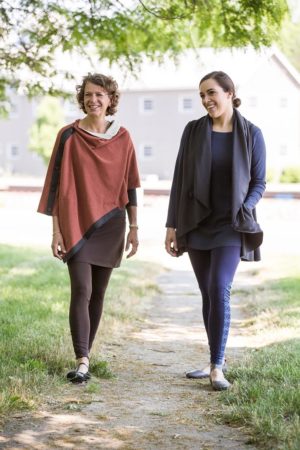
When asked what she sees as the unique or defining characteristic of Maggie’s Organics is, Bená credits the company’s involvement in every level of production.
“We are involved in every step of our supply chains – from farm to finish,” she said. “When we began 25 years ago, we had to invent our business model because nothing like it existed. We purchased all this organic cotton from a farmer, and then had to figure out how to make it into clothing. This led us through the very complicated path of textile conversion, and taught us firsthand about all chemicals used at every supply-chain step (carcinogenic waxes, mutagenic dyes, formaldehyde, yikes!). Subsequently, we led the charge to develop post-harvest processing standards for organic clothing, which in turn led to the development of GOTS (Global Organic Textile Standards). We continue to operate the same way today, still involved in each step of production of each product. This remains the biggest point of difference between Maggie’s and other organic apparel companies.”
This involvement also presents its own challenges and necessary sacrifices.
“It has taken years to develop what we believe are equitable and sustainable supply chains. We aren’t about ‘scaling and selling out.’ We stay true to our ideals which at times forces us to turn away from big sales opportunities because these relationships would mean sacrificing our ideals and/or abusing our supply chains. So we opt for patient and slow growth,” Bená says.
Maggie’s Organics main goal for the Fair Trade Fashion Show in Los Angeles July 29 is to represent real “fashion.”
“At Maggie’s, the world of ‘fashion’ represents the world of planned obsolescence, and it is this very world that creates enslaved and underpaid workers. So it is unusual for us to even participate in a fashion show. But this one seems different, as its sponsors have dug deep and truly walk their talk. So our goal is to show classic, beautiful affordable pieces that can be worn season after season, and that honor every body shape and size. We believe real ‘fashion’ comes from within and we strive to make and show clothes that make every person feel like a fashion model, empowered to bring their gift to the world,” Bená says.
Worrying about fair trade can often be intimidating for the typical consumer but Bená views ethical purchasing as giving power to the buyer. Buying fair trade allows the consumer to make a conscious decision to buy clothing that was created without the involvement of slave labor. Fair trade fashion helps eliminate modern slavery from the clothing process. Bená is also very aware of the power of human connection.
“We think every person needs to decide for his or herself why and who they want to support with their wallet. Our goal is to simply ask you to take a pause, with your hand on the garment on the rack, and think for one minute about the hands and the faces that created that garment: the farmworker who picked the cotton in the blazing sun, the person who inspected the rolls of cloth as it poured out of the knitting machine, the woman running the sewing machine, paid by the piece, rushing to make quota in order to put dinner on her family’s table. If those who wear our clothes could meet those who make our clothes, we believe the world would be a much more ethical place,” Bená says.
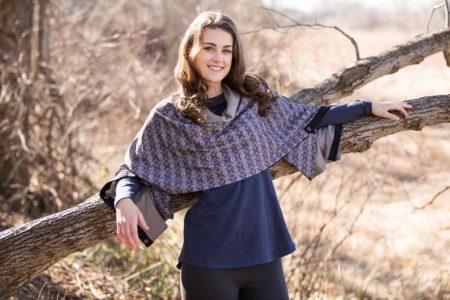
Consumers truly have the ability to impact the fashion world. Shopping at places like Maggie’s Organics can help minimize human rights abuses. Fortunately for the ethical consumer, Maggie’s Organics has proven its resilience and reliability
“My watershed moment about fair trade occurred in 1997. We had added basic T-shirts to our line back in 1995, as each T-shirt uses approximately a half pound of cotton, and could help fulfill our goal of converting as many acres as possible from chemical to organic farming. Tees quickly became our best-sellers, but we had terrible problems with late orders and poor quality from our suppliers,” Bená says.
When fulfilling an order for a few thousand Ben and Jerry’s T-shirts for a benefit concert, Bená learned that real fair trade works
“Convinced by the owner of our sew shop that the tees were late and the tee order would not make it to the concert in time, I panicked,” Bená recalls. “I flew down to the sew shop and started working production – trimming threads, delivering sleeves to hemmers – doing anything I could to speed up the process. Despite the complaints of the owner, I began to talk to the sewers about the concert, the lake, the environment, and the band. The women at the factory sewed a record number of tees that day, worked through their shifts, and together got that order delivered on time and on spec. What I did, inadvertently, was connect them to a cause bigger than themselves, to the pride they had in the craft, and to their customers. That is the day Maggie’s changed course, and became about saving lives, and not just acres.
Maggie’s Organics gives consumers the opportunity to use their money to support their own morals. Bená assures us that ethical consumption is worth it.
“No product is perfect, no person is above. Shop with your heart; know your power; ask as many questions as you can. Know that every company is only as good as you make us. Keep us striving.”
